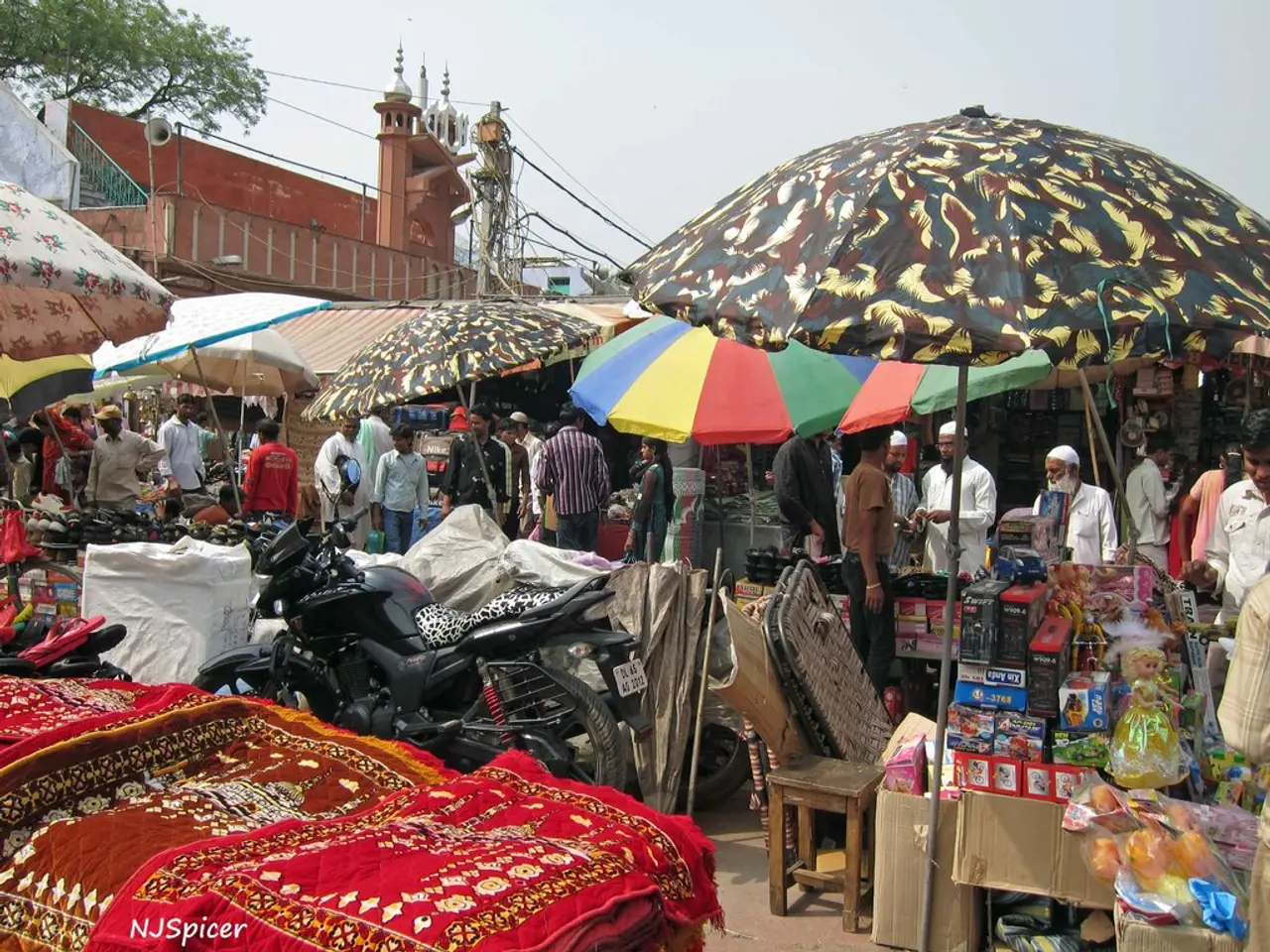Berlusconi Offered Valuable Assistance
In recent times, Italy has embarked on a significant journey to redefine its national identity, with far-reaching implications for its international role. This transformation is marked by cultural, economic, and environmental reforms, as well as a renewed focus on sustainability, cultural diplomacy, and strategic partnerships.
The redefinition of Italy's cultural identity is evident in discussions about fraternity as a core component of human relationships, which could influence social and political reforms. Italy is also investing heavily in digital and energy infrastructure, positioning itself for global competitiveness and economic growth. New tax credit rules aim to enhance transparency in the film and audiovisual industry, potentially boosting Italy's international reputation as a reliable partner for cultural projects.
Italy's focus on sustainable practices, as seen in its premium eco-friendly tourism offerings, could enhance its international leadership in environmental initiatives. This aligns with global efforts to address climate change and promotes Italy as a model for sustainable development. By combining rich cultural heritage with digital tools, Italy is not only attracting tourists but also projecting its cultural identity globally, strengthening its role in cultural diplomacy.
Strategic partnerships like the UAE-Italy collaboration for energy and data center projects indicate Italy's growing influence in international collaborations. Such endeavors can solidify its position in global economic and energy markets.
However, this redefinition of national identity has sparked controversy, with some questioning the implications for Italy's international standing. The government's political focus includes measures hindering sea rescue operations and halting the registration of children from same-sex parents, which have raised concerns about human rights and Italy's commitment to its European values.
Italy's political landscape has also been marked by the rise of far-right groups that focus on Yugoslavia and the crimes of communist partisans, omitting Italy's invasion during World War II. Prime Minister Giorgia Meloni, who supports a bill aimed at reducing the use of English in official communications, has been criticised for her stance on these issues.
Despite this, Meloni's government is keen to show loyalty to the EU and NATO. Italian political scientist Sandro Mezzadra has proposed a theory of "a new imperialism" beyond nations, suggesting that Italy's international role may evolve in unexpected ways.
This redefinition of national identity comes amidst a backdrop of three decades of stagnant economy, declining wages, and declining voter turnout among the working class in Italy. The left must renew itself by reaching non-voters and needs a vision for the future in memory culture, as a bill part of the broader political agenda by the government seeks to redefine Italian national identity.
The legacy of Italy's past, particularly the MSI party, a fascist revival party, has also been a contentious issue. Silvio Berlusconi legitimized MSI as moderate and anti-communist when he first included it in his government in 1994. Despite massive resistance against attempts to move MSI to support a government in 1960, the party survived the end of the Cold War and a major corruption scandal due to not being involved in either event.
David Broder, a historian at Syracuse University, has published a book titled "Mussolini's Grandchildren: Fascism in Contemporary Italy," shedding light on this complex issue. Matteo Salvini, a key figure in contemporary Italian politics, has distanced himself from the past, criticizing neofascism. Giorgia Meloni, on the other hand, speaks of fascism as if it were only about the regime, praising MSI founder Giorgio Almirante as a political hero.
Meloni, however, takes a different approach, stating that the past is the past and implicitly assuming a narrower definition of fascism. She claims that MSI condemned anti-Semitism decades ago and that the time of apologies is over. This stance has been met with mixed reactions, reflecting the ongoing debate about Italy's national identity and its international role.
In conclusion, Italy's redefinition of national identity through cultural, economic, and environmental reforms can enhance its international reputation and role. It positions Italy as a leader in sustainability, cultural diplomacy, and economic partnerships, thereby strengthening its global presence. However, the implications of this redefinition for human rights, international relations, and Italy's commitment to its European values remain a subject of ongoing debate and scrutiny.
[1] Cultural and Social Reforms: https://www.reuters.com/world/europe/italy-moves-right-with-new-government-focusing-on-national-identity-2022-10-22/ [2] Economic Partnerships: https://www.reuters.com/business/energy/italy-uae-sign-deal-develop-green-hydrogen-2022-10-26/ [3] Tax Reforms and Transparency: https://www.reuters.com/business/media-telecom/italy-moves-tax-credit-rules-boost-film-industry-2022-09-19/ [4] Global Leadership in Sustainability and Cultural Diplomacy: https://www.reuters.com/world/europe/italy-aims-project-cultural-identity-world-using-digital-tools-2022-10-20/
- The ongoing debate about Italy's national identity, marked by discussions on cultural reforms and social values, also includes the government's policy-and-legislation on sea rescue operations and the registration of children from same-sex parents, sparking controversy about human rights and the country's commitment to European values.
- As Italy emphasizes its cultural diplomacy and strategic partnerships, especially in areas like energy and digital infrastructure, it is simultaneously grappling with the political implications of its redefined national identity, notably its stance on politics and general news issues such as human rights and its relationship with the European Union.






